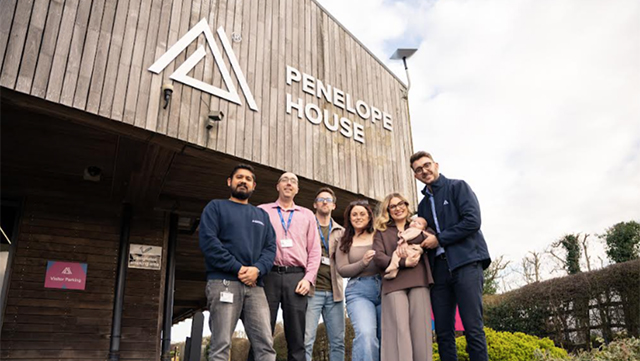From its inception as a construction company in the 1950s, Milan-based investor Gruppo Statuto now owns a €2.5bn portfolio of Italian properties and is branching out, with an eye on New York
Like the Italian diaspora, Milan-based private investment company Gruppo Statuto is looking beyond the old country for new opportunities abroad. This year, Statuto has bought property in New York City and in London. The deals may be something of a departure for Statuto, but the bulk of its assets are still in Italy.
In June, the unlisted property investor bought the mixed-use Herald Square building in Manhattan from New York Community Bancorp for $105m (€76m). In January Statuto bought the Crowne Plaza hotel in London’s City for £80m (€118m).
Statuto’s portfolio of Italian assets includes the prestigious Hotel Danieli in Venice and the Four Seasons Hotel in Milan, a 15th century former convent, which it bought last year. The company also recently signed a management deal with the InterContinental chain for its Milan Grand Hotel Duomo, which is scheduled to open next year after a lengthy and significant renovation.
Statuto began life as a construction firm in the 1950s. But it was not until the early 1990s that the company switched to investing, with owner and chairman Giuseppe Statuto taking over the family-run business.
The focus on investment has not prevented Statuto from entering into development and refurbishment projects. Last November, for example, it agreed a joint venture with Spanish chain AC Hotels for a 176-room hotel project in Milan’s Via Tazzoli.
Statuto has grown rapidly in recent years. Sales rose from €100m in 2002 to €789m in 2005. Profits also rose – by nearly eightfold during the same period to €83m in 2005. Today, the company owns a €2.5bn portfolio of properties across Italy. Its assets are divided in typical fashion, with the north of the country the main focus for investment (see chart).
The company’s formula seems to defy the myth that Italy is “full of old buildings”. Certainly Statuto has some classic Italian properties on its books, but newer developments, such as a residential riverside development between Naviglio Grande and Naviglio Pavese, add some variety to Statuto’s portfolio.
In Italy, Statuto may be keener on the north for simply that reason – cities such as Milan offer both old and new stock. The company sees Milan, where 39% of its portfolio’s value is located, as a platform for international expansion, but only in stable markets.
“We are observing the New York real estate market for more investments in the future and we are also looking at the Eastern European market,” says chairman Giuseppe Statuto. “But we do not have any specific targets at the moment.”
The chairman may be keeping tight-lipped on future plans. But the company likes to talk and is open to international partnerships. The company’s agreement with AC Hotels of Spain last year came after a joint venture agreement with Lehman Brothers for a €450m, 98,000m2 residential project. The two ventures are indicative of Statuto’s strategy, which concentrates on hotels and residential properties.
This year could be critical for Italy’s investment market. The country is only months away from the arrival of its first REITs, or Società d’Investimento Immobiliare Quotate (SIIQ). All eyes have been on likely candidates, such as Pirelli, Beni Stabili and IGD.
Statuto has not ruled out moving towards SIIQ status and could be among those converting to the new regime in the future. It may not be ready or able to join the first wave of those adopting the new tax-efficient regime, but Statuto’s head is clearly keen to know more.
“At the moment, we don’t intend to become a SIIQ,” says Giuseppe Statuto, despite speculation that his company is preparing to do just that. “We are waiting for the rules. We’ll read the final regulations and then decide for good.”
Statuto, and the rest of Italy, could be in for a long wait, with little sign of any development on SIIQs. But Italy’s stock market regulator, Consob, did approve Real Estate Investment Companies recently, paving the way for firms to begin trading on the country’s alternative investment market, Expandi.
Statuto would have no problem meeting the SIIQ’s requirement of a minimum market value of at least €200m. However, rules on freefloats would clearly present the company with a stumbling block if it does decide to become a SIIQ. Gruppo Statuto, though, is more likely to be busy splashing the cash in New York. Or London.










